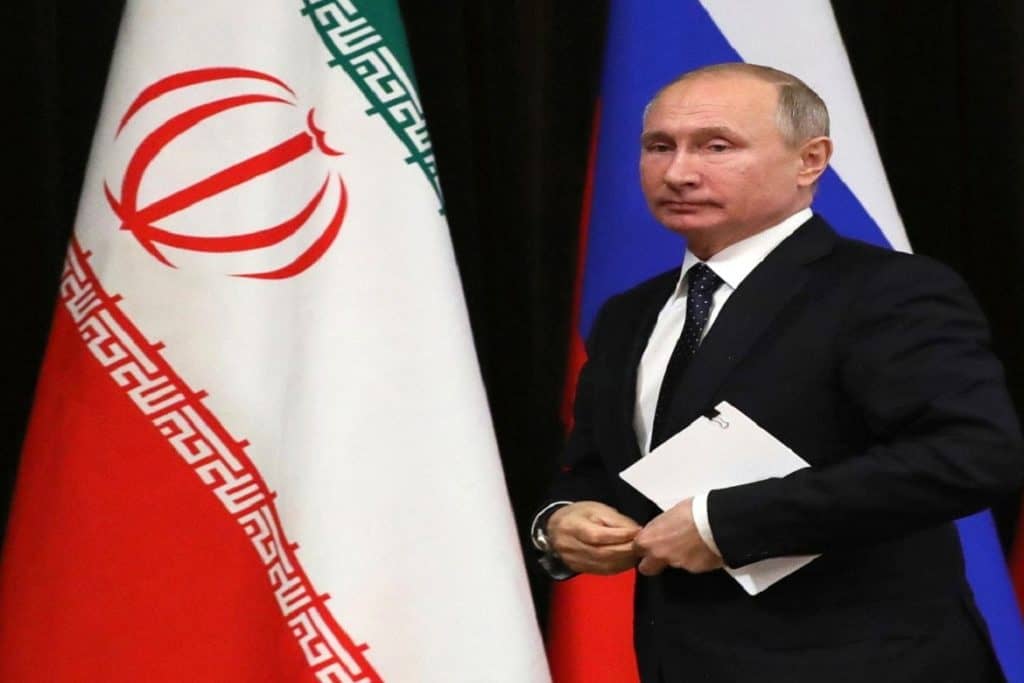By Denis Korkodinov
The Russian factor in the growing confrontation between Washington and Tehran may take a leading role if Moscow takes advantage of the chance provided. Russia can save Iran if it wants.
Moscow’s Middle East success is distinguished, above all, by striving to ensure a balance of interests, and determines its mediating mission in world politics. However, the damage inflicted on Iran by American sanctions creates for Russia the risk of losing its ability to act as an arbitrator in key geopolitical processes in the Middle East. In particular, the anti-Iranian campaign undermines the capabilities of the Russian side in the Syrian theater of operations, creating a wide range of actions for armed forces controlled by the United States and its allies, including against the armed forces of Bashar al-Assad.
It is worth noting that Moscow and Tehran have formed a fairly viable convergence in the field of regional security in order to promptly respond to terrorist challenges and implement peacekeeping practices in reforming the world’s geopolitical system. This Russian-Iranian alliance was unique in the sense that Moscow could not cooperate with anyone so positively in the Middle East as with Tehran. Which allowed the Ayatollah regime to deservedly become one of the pillars on which Russian foreign policy rested. Meanwhile, the pressure on Iran from Washington significantly undermines the created architecture of the alliance, giving the White House administration broad powers to organize conflict situations.
Of course, the weakening of Iran, in economic terms, may be beneficial for Russia, which is likely to strengthen its competitive advantages in the global natural gas market and, possibly, gain control over Iranian oil fields. However, the political costs that are quite expected as a result of the aggression against official Tehran can have such a negative impact on Moscow that they completely neutralize the economic benefits that the Russian side can get from anti-Iranian aggression.
Thus, the risk of direct armed confrontation between the United States and Iran and the nuclear arms race in the Middle East directly threaten Russia’s national security. The head of the Russian Foreign Ministry, Sergey Lavrov, hastened to make an official statement condemning Washington’s policy toward Tehran, having publicly recognized the right of the Ayatollah regime to defend its state sovereignty.
At the same time, at the moment, the actual actions of the Kremlin to normalize US-Iranian relations have so far not yielded tangible results. Which is due, in our opinion, to Russian politicians not understanding that by contributing to the deterioration of Iran’s position, they could cause harm and create big problems for Moscow in the international arena.
In this regard, it will not be a surprise if, against the background of a weakening of the ayatollahs regime, Russia will eventually have to completely lose its influence in Syria, which, in turn, could testify a fiasco of the Kremlin’s Middle Eastern policy. Seeing how the Russian-Iranian union collapses, in the Middle East could consider necessary to look for more reliable allies.
Until recently, Moscow and Tehran managed to institutionalize their relations through a clear coordination of their actions in Syria. In addition, such a format of friendship between countries could not be limited solely to military-diplomatic aspects and implied cooperation, including in the economic sector.
In this regard, American radicalism towards Iran in conjunction with the Israeli bombardment of Iranian facilities require Moscow to be more attentive to its ally, thanks to which, in fact, Russia was able to establish itself in Syria. In addition, the actively promoted brand of Russia as a superpower must assume, at a minimum, an unshakable commitment to allied agreements. However, at present Iran is beginning to show doubts that an alliance with Moscow meets its interests. This gives grounds for the Ayatollah regime’s conviction of the need to search for new allies, and it is possible that these allies will later prove to be on different sides of the front with respect to Russia.
Moscow’s direct involvement in the US-Iran conflict in the event of an escalation is unlikely. This was clearly stated by Vladimir Putin, who noted that Russia is “not a fire brigade and cannot save everyone”. Is it worth it in such circumstances to expect that in case of large-scale international pressure on Moscow, the Kremlin’s allies will not turn out to be a “fire brigade” and declare that they cannot save everyone ?!
To secure Iran, Russia has the opportunity to strengthen the Ayatollah’s air defense system. The development of the military conflict in Syria clearly demonstrates that Moscow is quite successfully using state-of-the-art air defense systems, creating a reliable shield over large territories. Thus, the Russian side can provide the S-400 complexes along with electronic defense systems, including Borisoglebsk-2 and Krasukh-4S, which would allow Tehran to feel its security in the face of a potential attack.
Among other things, the Kremlin could deploy a limited contingent of armed forces in Iran. In the end, if the demonstration of the Russian Tu-160 in Venezuela was a certain deterrent in the international arena, then such public actions organized on Iranian territory would have had no less impact. Such measures of participation of Russia would create significant obstacles for international pressure on Tehran, and, at least, would make the anti-Iran campaign unfolding in the world more restrained.
(The opinions expressed in this article are solely those of the author and do not necessarily reflect the views of World Geostrategic Insights).







